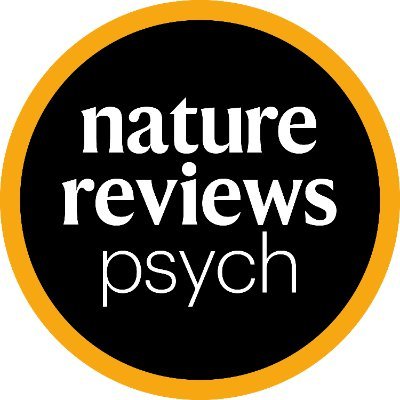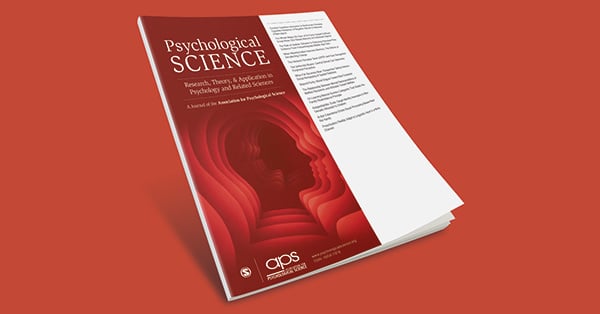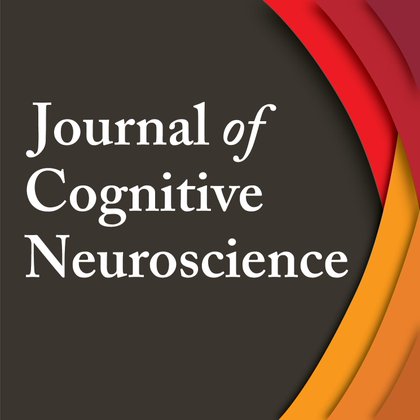
Tess Forest
@tessforest
Followers
413
Following
2K
Media
11
Statuses
280
PostDoc at Columbia @dcnlabcolumbia (PI: Dima Amso). @UBC cogs & @UofT psych alumna. I study how learning changes with brain and cog. development.
Joined December 2011
I'm so excited this is out!! We wrote a review about how the nature of statistical learning may change with development. Feeling very lucky to have had the dream team of mentors to think (and write) about these issues with ⭐️ @amysuefinn @megschlichting @duncanlabUofT.
'Changes in statistical learning across development', a new Review by @tessforest, @megschlichting, Katherine D. Duncan & @amysuefinn. Web: ReadCube:
3
23
77
RT @duncanlabUofT: Thrilled to share our new preprint validating personalized fMRI state segmentation during event processing. Thanks to ou….
0
3
0
This helps us understand why past research shows a link between caregiver predictability and cognitive outcomes across species (hot topic @FluxSociety this week!): nuanced variation in early predictable experiences shapes the development of core learning processes early in life.
1
1
4
Early Caregiver Predictability Shapes Neural Indices of Statistical Learning Later in Infancy! Out today in Dev. Science 🙂 A team effort (!) w/ coauthors incl. @dcnlabcolumbia @laurel_joy_gd @SarahMcCormick1 Nwabisa Mlandu, Michal Zieff and @KirstyDonald
onlinelibrary.wiley.com
Caregivers play an outsized role in shaping early life experiences and development, but we often lack mechanistic insight into how exactly caregiver behavior scaffolds the neurodevelopment of...
6
17
66
RT @amysuefinn: New paper out! We show how children really are little sponges, learning to the same extent regardless of whether we tell th….
journals.sagepub.com
Children sometimes learn distracting information better than adults do, perhaps because of the development of selective attention. To understand this potential ...
0
15
0
RT @LauraBatterink: Job alert! Looking for a postdoc with experience and interest in EEG, sleep, memory consolidation, and/or aging for a….
0
35
0
RT @brynnesherman: This paper is now officially out in @JOCN_Journal! In it, we use intracranial recordings to explore how the brain rapidl….
direct.mit.edu
Abstract. We encounter the same people, places, and objects in predictable sequences and configurations. Humans efficiently learn these regularities via statistical learning. Importantly, statistical...
0
14
0
RT @UofTArtSci: U of T researchers have shown that while children struggle to pay attention, they still take in information — even info the….
0
2
0
RT @nickgaspelin: Looking for a postdoc! This position would focus on understanding shifts of covert attention that occur before eye moveme….
0
24
0
Maternal predictability differs based on environmental affordances! Come check out these @dcnlabcolumbia lab managers’ poster this morning at #aps2023 👏🏻👏🏻
0
0
6
The first kid fMRI study I ever helped scan is out now! ⭐️A real joy to learn from @yaelanjung @amysuefinn and @DirkBWalther throughout this project (and the results are pretty cool, too!).
#JNeurosci: @yaelanjung, @tessforest, @DirkBWalther, and @amysuefinn @UofT show that attention works differently in children's brains compared to adults', likely allowing children to learn about facts that are not immediately relevant for a task.
0
1
18
RT @MH_Christiansen: Want to know more about the development of auditory and visual statistical learning and its relation to language acqui….
0
11
0
RT @salovphd: *Developmental Cognitive Neuroscientists* Come work with me @NICHD_NIH ! My branch is searching for a new PO! .
nichd.nih.gov
ResourcesVisit Jobs@NIH for information on career opportunities in science, administration, and other areas.
0
32
0
RT @Catherineoscopy: A grad school bound student asked if I had any advice. Like many students w this opportunity, she is bright, ambitious….
0
260
0









